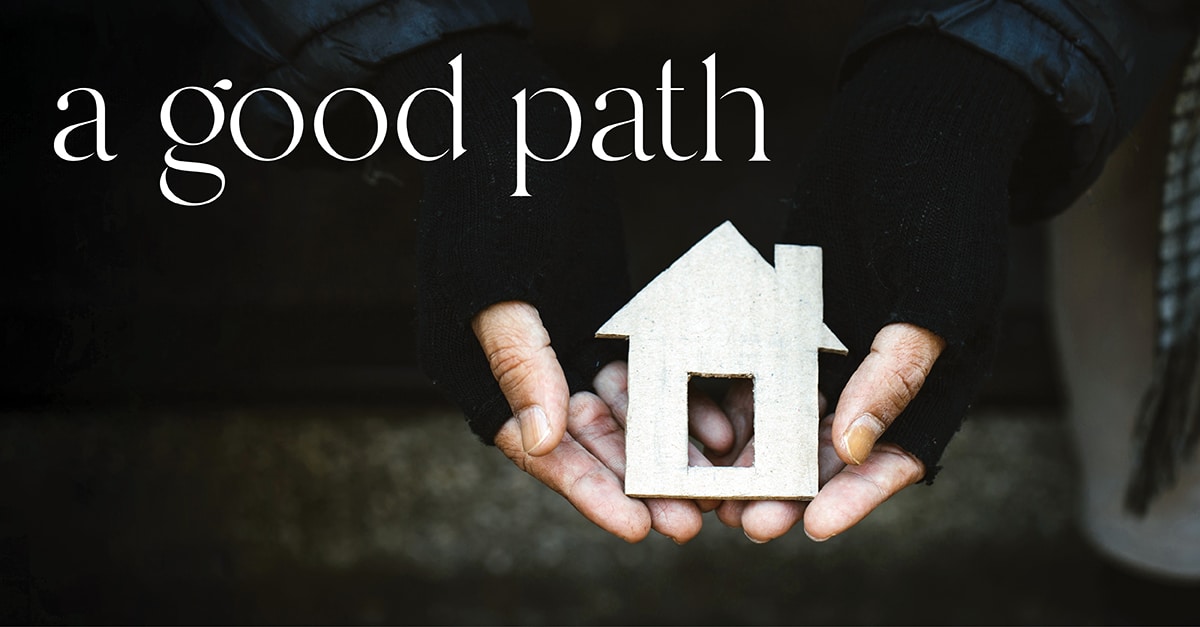A Good Path
Pathways to Housing…
This month, Enjoy reached out to Pathways to Housing Executive Director Lesha Schaefer to find out a bit more about their organization.
ENJOY: Tell us a little about Pathways to Housing.
SCHAEFER: Pathways to Housing is a relatively new and small nonprofit that began providing services in late 2020. Medical respite is a program where individuals who are experiencing homelessness can discharge to from the hospital to receive medical recovery care. It is a short-term program, up to 8 weeks. While people are at our facility, The Hartman House, they are provided with their own sleeping area, locking storage, three nutritious meals per day, access to laundry and showers and mail service. Each resident is connected to case management and onsite medical care here. We have 24/7 staff to assist patients around the clock. We also provide a scattered site model for individuals who are not a good fit for a congregate living setting. This would be people who have pets, family members or severe and untreated mental health or substance use challenges. We place people into a motel room and bring medical care, case management, laundry service, nutritious meals, hygiene products, clothing, etc., all to their motel room. We are also involved in Redding’s first microshelter community, where we provide case management to the eight residents who live there, assisting them with overcoming barriers to obtaining permanent housing. Microshelters are transitional housing for a 10-month period. We just opened our units up in March 2023. We hope to become involved in other housing opportunities in the future.
ENJOY: How does Pathways to Housing collaborate with other local organizations, government agencies or community partners?
SCHAEFER: Both of our programs are operated in collaboration and partnership with other agencies. Medical respite operates in partnership with Shasta Community Health Center, which provides the onsite medical care, case management, behavioral health and drug and alcohol services. Pathways provides all of the hospitality services and the housing facility. The microshelters operate in partnership with United Way of Northern California, which provides the site and program oversight while Pathways provides the case management. Pathways also provides dinner every day to the microshelter residents and the two motel programs operated by Shasta Community Health Center. We provide up to 50 meals per day to community members who need extra support.

ENJOY: What are some of your success stories in helping individuals and families find stable housing?
SCHAEFER: We have served 316 patients in our medical respite program to date. Of those, 43 have obtained housing while in our program. Given the increasingly unaffordable housing market and the multiple barriers our clients experience, this is a success. We have one employee who was a previous client of respite and multiple previous clients who came back to volunteer to help! This speaks to the quality of service and sense of belonging and family our program fosters. In addition, 142 individuals have engaged in drug or alcohol services during their stay at respite. We also have one individual who just obtained permanent housing in our microshelter program. He will be exiting transitional housing and going into permanent housing in the upcoming weeks.
ENJOY: What are the criteria for individuals seeking assistance from Pathways to Housing?
SCHAEFER: For the microshelters, you need to be homeless and willing to work on taking the steps necessary to move forward and obtain housing. Criteria for medical respite is that you need to be homeless, have an acute medical condition and be willing to engage in medical treatment.
ENJOY: Are there any upcoming projects, expansions or collaborations that Pathways to Housing is working on?
SCHAEFER: We are working on expanding our medical respite program from 15 patients at a time to 30. This will occur in the upcoming months. Pathways is also looking to acquire a residential building to accommodate up to 15 patients in medical respite. We would also love to collaborate with other organizations to put together and open a resource center. There are lots of conversations in the community about the need and desire to create one.
ENJOY: How can people get involved with your efforts?
SCHAEFER: We are always in need of financial support. Being a small non-profit, we rely heavily on grants and donations to keep our operations going. We have donation links on our website, reddingpathways.org, and our mailing address is 1871 Kenyon Drive. My need for volunteers lies heavily in the development and donor relations department. Microshelters needs a volunteer to come in and provide budgeting education to the residents. •




